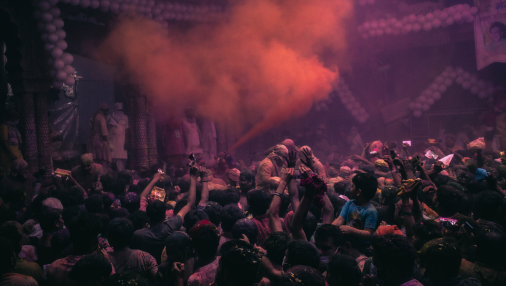Why Hindu Festivals Are So Important
India, known as the land of spirituality and culture, is home to a wide variety of traditions and celebrations. Among them, Hindu festivals hold a very special place. These festivals are not just days of joy, colors, and rituals, but they also carry deep meanings that go beyond religious boundaries. They connect families, strengthen communities, preserve heritage, and remind people of values that are vital for life. Let us explore why Hindu festivals are so important in shaping our culture, faith, and daily lives.
1. Preservation of Culture and Tradition
Hindu festivals are a living expression of India’s rich heritage. Each festival has unique customs, music, food, attire, and rituals that reflect centuries-old traditions. For example, Diwali, the festival of lights, celebrates the victory of good over evil, while Holi, the festival of colors, celebrates love and unity. By celebrating these festivals, people pass down traditions from one generation to another, keeping the culture alive.
2. Spiritual Significance
At the heart of Hindu festivals lies spirituality. Festivals encourage people to remember and honor divine powers. Navratri symbolizes devotion to Goddess Durga, while Janmashtami commemorates the birth of Lord Krishna. These occasions allow individuals to engage in prayers, fasting, meditation, and self-reflection, helping them feel connected to the divine. Thus, festivals offer both joy and inner peace.
3. Strengthening Family Bonds
One of the greatest values of Hindu festivals is how they bring families together. In today’s fast-paced world, where many people live away from their hometowns, festivals become an opportunity to reconnect. Families cook together, decorate homes, share gifts, and pray as a unit. This strengthens emotional ties and promotes love, respect, and understanding among family members.
4. Promoting Unity in Diversity
India is a country of immense diversity in language, food, customs, and traditions. Yet, Hindu festivals create a sense of unity. People from different backgrounds come together to celebrate. For example, during Raksha Bandhan, sisters tie a protective thread around their brothers’ wrists, and this bond is celebrated across India, irrespective of region. Similarly, Diwali is celebrated not only in India but by millions around the world, promoting global unity.
5. Teaching Moral Values
Festivals are not just about fun and celebration; they are powerful lessons in ethics and values. Dussehra teaches us that truth always triumphs over lies by symbolizing Lord Rama’s victory over Ravana. Makar Sankranti represents gratitude for the harvest and teaches us to respect nature. Through stories, rituals, and traditions, festivals remind us of kindness, generosity, humility, and gratitude.
6. Boosting Joy and Mental Well-being
Celebrating festivals fills life with colors, laughter, and positivity. The rituals, decorations, music, dance, and sweets create happiness and help people take a break from their routine. Psychologists believe that festivals reduce stress, strengthen mental health, and promote community harmony. Lighting lamps in Diwali or playing with colors in Holi fills the atmosphere with positive energy that uplifts the spirit.
7. Contribution to Economy
Apart from cultural and spiritual importance, Hindu festivals also boost the economy. During festival seasons, people buy clothes, jewelry, sweets, electronics, and gifts. Markets are decorated and full of activity. Festivals also support artisans, craftsmen, and local businesses. According to reports, festivals like Diwali and Dussehra contribute billions of rupees to India’s economy each year.
8. Respect for Nature and Seasons
Many Hindu festivals are closely connected with the cycles of nature and agriculture. Makar Sankranti marks the harvest season, Onam celebrates the arrival of new crops, and Vasant Panchami welcomes spring. These festivals remind us to live in harmony with nature, respect the environment, and be grateful for what the Earth provides.
9. Creating Lifelong Memories
Festivals leave behind beautiful memories. The joy of lighting crackers, applying colors, wearing new clothes, and sharing traditional foods stays with us forever. They become stories that grandparents tell grandchildren, keeping emotional bonds alive. Such memories shape the cultural identity of individuals and communities.
10. Spreading Messages of Peace and Brotherhood
At a deeper level, Hindu festivals promote peace, forgiveness, and brotherhood. They inspire people to forget past quarrels, forgive mistakes, and celebrate togetherness. For example, during Holi, people let go of anger and negativity by playing with colors. This creates an environment of love and friendship, which is crucial for society.
Conclusion
Hindu festivals are much more than religious rituals. They are the soul of Indian culture and tradition. They bring people closer to their roots, strengthen human connections, and teach values that are timeless. Festivals preserve heritage, celebrate nature, promote peace, and add joy to life. Without them, society would lose a major part of its cultural identity.
In essence, Hindu festivals are important because they keep alive the spirit of unity, devotion, joy, and gratitude. They are not just days of celebration but a way of life that guides people to live with love, peace, and spirituality.

